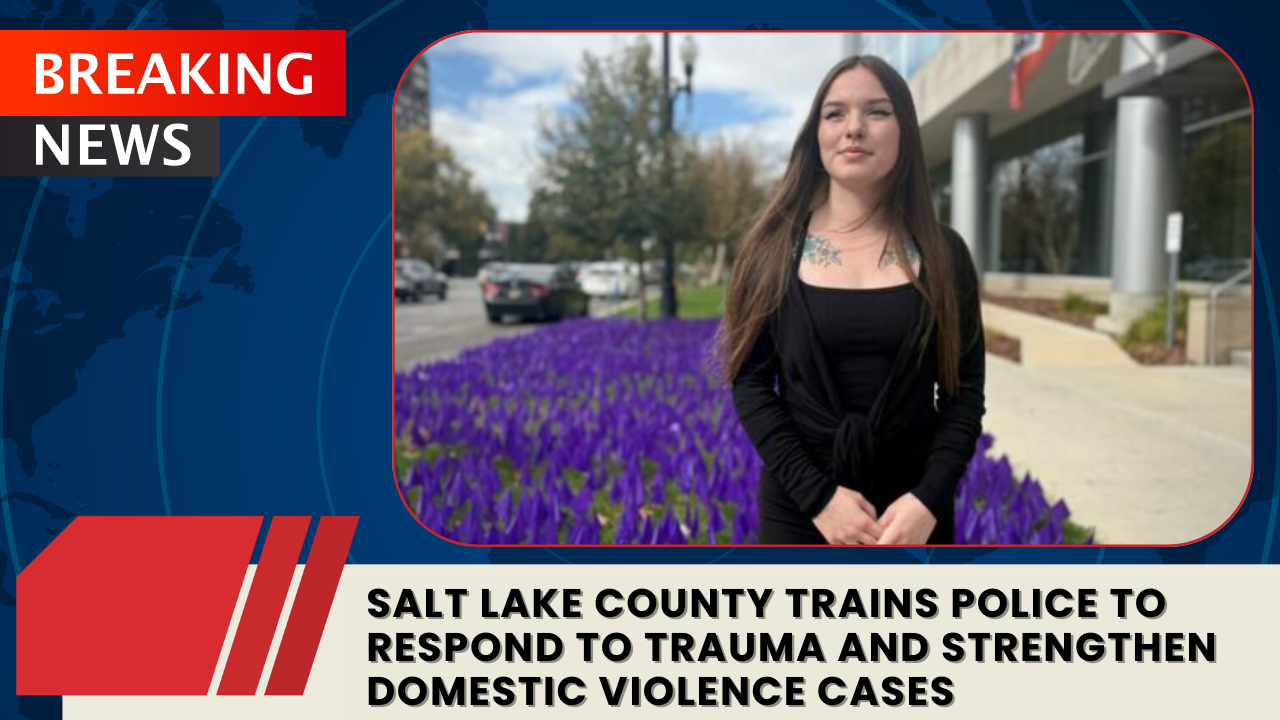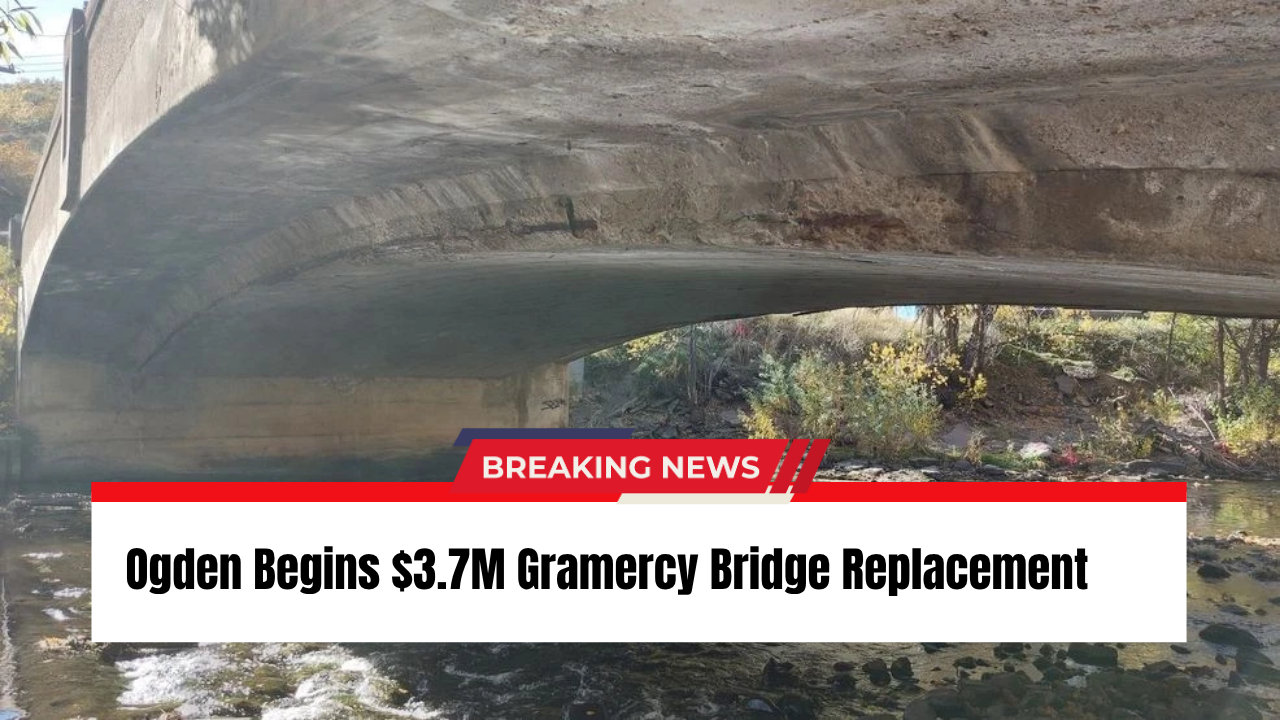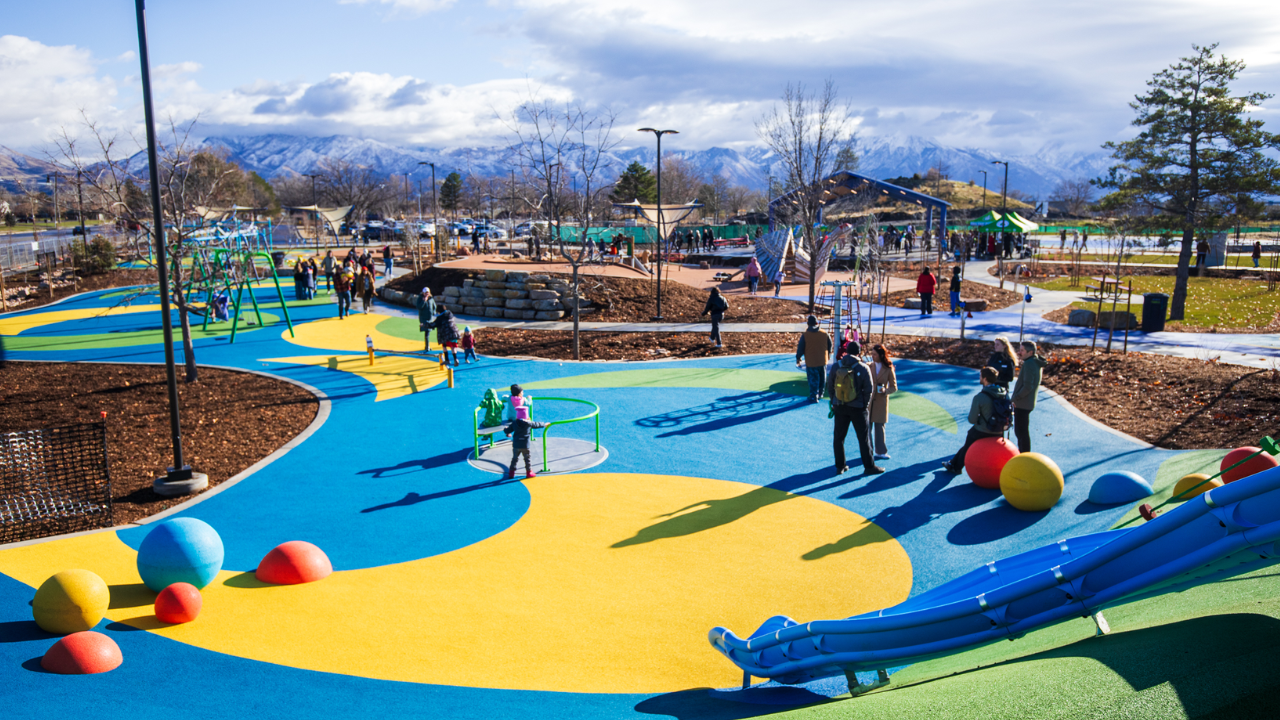For years, Alivia lived in constant fear inside her own home. Today, standing outside the Salt Lake County District Attorney’s Office, where hundreds of purple flags fluttered in honor of domestic violence survivors, she finally felt peace.
“It’s so relieving,” she said quietly. “Now I just have to focus on myself, my healing journey — just picking up the pieces every single day.”
Alivia, who gave Utah News Dispatch permission to use her first name only, credits Salt Lake City police officers and county prosecutors for acting swiftly and compassionately to arrest and prosecute her abuser. But she also knows her experience isn’t the norm.
Salt Lake County District Attorney Sim Gill said many domestic violence survivors in Utah never receive that level of support — and many abusers still evade accountability.
A New Training Model for Police
Gill announced Thursday that his office has launched a countywide police training program designed to help officers respond to domestic violence through a trauma-informed lens. The goal: to ensure investigators collect critical evidence early and interview survivors in ways that avoid retraumatizing them.
The new effort, Gill said, is not just about compassion — it’s also about efficiency and justice.
“One of the things I want to minimize is the delay between an incident and us filing,” Gill said. “If I’m sending a case back for further investigation, the urgency of the moment is being compromised.”
By training law enforcement to recognize the effects of trauma, Gill hopes to reduce delays in filing charges and strengthen the quality of cases that reach prosecutors.
Federal Grant Supporting Local Change
The program is being funded by a $500,000 grant from the U.S. Department of Justice, spread over three years. The grant covers the cost of specialized training for five police departments:
- Salt Lake City Police Department
- Riverton Police Department
- Draper Police Department
- West Jordan Police Department
- South Jordan Police Department
A longtime investigator from the District Attorney’s Office is also offering the same training to additional Utah law enforcement agencies that request it.
How the Training Works
At the South Jordan Police Department, officers have already participated in an early round of training emphasizing how trauma affects memory, communication, and response.
Lieutenant Adrian Montelongo said one key lesson has been understanding how victims may “freeze” when recounting abuse — a biological response to trauma, not a sign of dishonesty or resistance.
To make survivors feel safer during interviews, South Jordan police now offer to meet victims at their homes or other preferred locations and always include a victim advocate when requested.
“They’re dispatchable,” Montelongo explained. “If a survivor asks for one, we will call them out right away.”
These trauma-informed interviews help ensure survivors are heard — and that investigators collect the detailed, accurate statements needed to hold abusers accountable.
Statewide Efforts and Setbacks
Gill praised Utah’s progress in standardizing police responses to domestic violence. In 2023, state lawmakers passed a law requiring officers to complete a Lethality Assessment Protocol — a brief series of questions to help determine how much danger a victim faces.
The tool, now used statewide, helps officers identify high-risk cases and connect victims to safety resources more quickly.
However, another initiative has stalled. The Utah Legislature this year did not fund a program that would pay for forensic medical exams for victims of attempted strangulation — one of the most lethal forms of domestic violence.
Advocates say these exams are vital because they can reveal internal injuries or warning signs of stroke that may not be visible. They also provide crucial forensic evidence for prosecutors.
“They should definitely put funding back into that,” Alivia said.
A Culture Shift in Prosecution
Gill’s broader goal is to transform how Utah’s justice system views and responds to domestic violence. His office’s new training aims to bridge the gap between law enforcement, prosecution, and victim support, ensuring that survivors are treated as partners in justice — not just witnesses.
He emphasized that leaving an abusive relationship is rarely simple.
“It’s tempting to assume people in abusive relationships would simply leave,” Gill said. “But there are cultural, religious, financial, and emotional reasons that make that incredibly difficult.”
At Thursday’s press conference, Gill urged Utahns to check in regularly on anyone they suspect may be in danger. Ask how they can help. Encourage them to create a safety plan.
A Survivor’s Message
For Alivia, healing has been a process of patience and self-compassion. She still reflects on the “what ifs” — but says her life today is grounded in peace and progress.
“You’re going to always have the whys, the what ifs, the ‘what I could have done,’” she said. “I still get emotional about it, obviously. But time — that’s all you need. Time will heal.”



